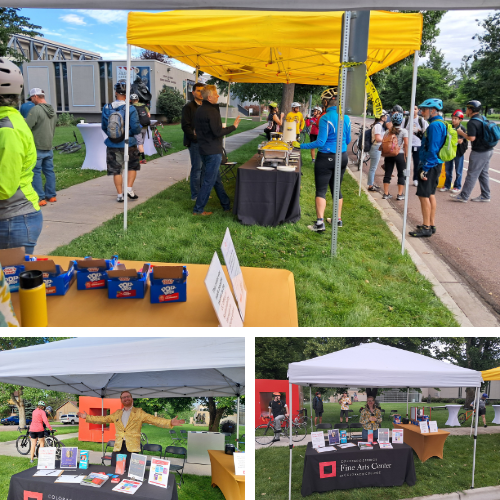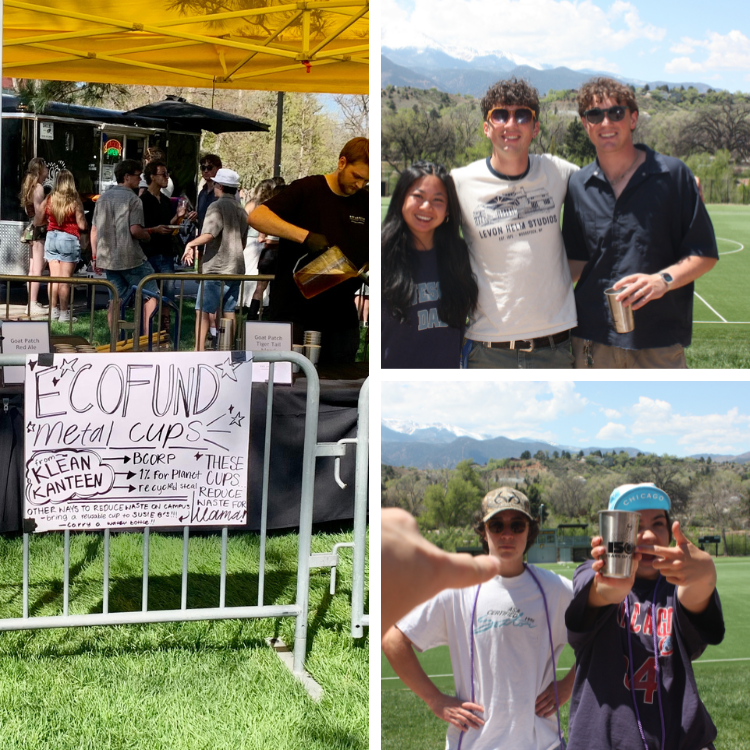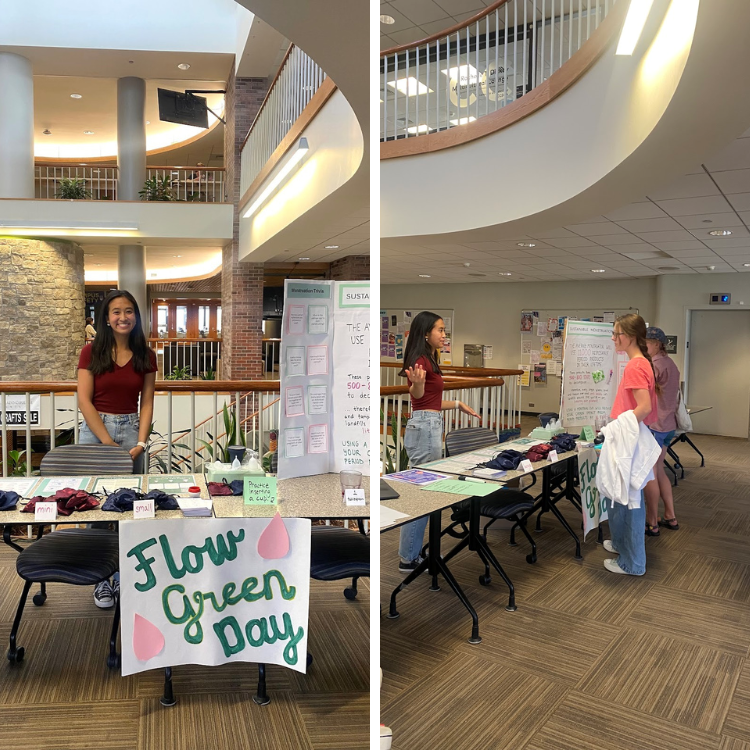EcoFund
After years of supporting innovative sustainability efforts on campus, the EcoFund is being phased out. Following a thoughtful evaluation of its engagement and impact, the decision has been made to redirect these resources toward broader, more inclusive, sustainability-focused co-curricular opportunities for students, staff, and faculty.
We are grateful for the creativity and commitment of the many individuals who contributed to the EcoFund's success.
What Was the EcoFund?
The EcoFund was established to promote the design and implementation of campus sustainability initiatives that aligned with one of Colorado College’s core values: nurturing a sense of place and an ethic of environmental sustainability, as well as the United Nations Sustainable Development Goals (SDGs).
Funding was made possible through a partnership with Bon Appétit and managed by the Office of Sustainability. The EcoFund supported projects, events, and research led by Colorado College students, faculty, staff, and administration. Awards of up to $3,000 per project were available, and applications were accepted on a rolling basis during the academic year.
We thank our campus community for their participation, passion, and commitment to sustainability.
Past Funded Projects
Bike to Work Day

Bike to Work Day
Spring 2025
Project Overview
On June 25, 2025, Colorado College (CC) hosted its second annual Bike to Work Day station in partnership with the Fine Arts Center and the CC Departments of Human Resources (HR) and Student Life. The event welcomed 410 cyclists commuting to work, offering food, fun, and a chance to connect with the CC and its upcoming programs. Breakfast offerings included breakfast burritos, fruit cups, coffee, and Pop-Tarts (with a toaster!), accompanied by free stickers, program information, music, and prize giveaways.
This station demonstrated CC’s commitment to sustainability, community engagement, and visibility as a cultural resource. Cyclists of all ages, including a notable increase in families with children, stopped by, contributing to a festive celebration of sustainable transportation.
SDG Alignment
Matthew Driftmier, Assistant Manager of Patron Services
Colorado College Fine Arts Center
Llamapalooza Reusable Cups

Reusable 150th Anniversary Cups at Llamapalooza
Spring 2025
Project Overview
At this year’s Llamapalooza, the switch to reusable Klean Kanteen steel cups was a huge success. “Where are the metal cups?” was the first question asked by students as the festival opened, and by the end of the night, not a single cup was left behind—everyone reused them during the event and took them home to continue using. By distributing 500 reusable pint cups at the beer and cider tents, which typically serve up to 5 drinks per 21+ student, the planning committee prevented up to 2,500 single-use plastic cups from entering the waste stream and cut the plastic cup order by more than half—an easy choice in CC's commitment to reducing waste.
SDG Alignment
Aiden McLean '26
Llamapalooza Planning Committee Member
Flow Green Day

Flow Green Day
Spring 2024
Project Overview
Flow Green Day on April 24th, 2024, featured interactive educational activities and free menstrual cups for students in celebration of Earth Week. Informational posters covered sustainable menstruation and menstrual cup usage. Around 90 students stopped by the event, with 66 menstrual cups distributed to students, with the remaining donated to Mesa High School and the CC Pantry. Additionally, a portion of the students were also given cup sterilizers, to sustainably sanitize the product.
SDG Alignment
Sabrina Ng '27
Independent Student
